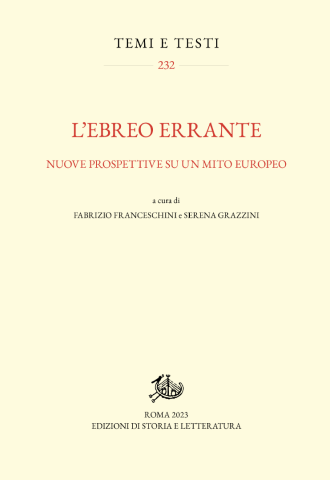
Edgar Quinet was only twenty years old when he published Les Tablettes du Juif errant in 1823, and ten years later Ahasverus: these two poems in prose, reprinted afterwards in anti-chronological order, represent the reaction of the French Republican intellectual to Johann Gottfried Herder’s conception of history, of whose Philosophie der Geschichte he published his three-volume French translation in 1827. This article contends that, in reaction to Herder’s post-Hegelian historical determinism, Quinet’s vision of history includes the contingent dimension of history, of which the figure of Ahasverus the Wandering Jew is the epitome, proposed by Quinet as an antidote to Herder’s organic antisemitism. The notion of errance, or wandering, is analyzed here from the point of view of Aristotelian philosophy revisited by Lacanian psychoanalysis, and in the light of Derrida’s reading of the poems of Edmond Jabès, in the line of Quinet’s intellectual heritage.
